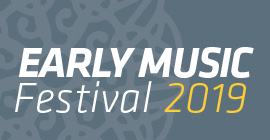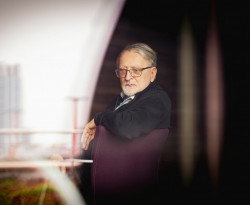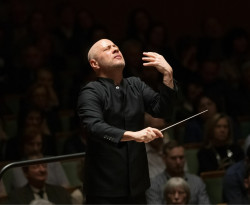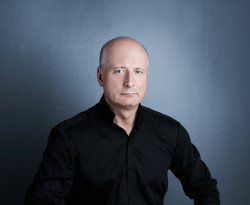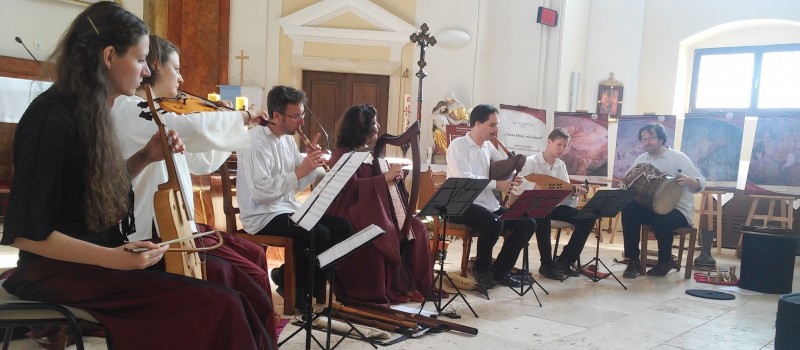
The Glory of Springtime
Medieval music from the Mediterranean
- Early Music Festival
Ticket prices
Add this event to your Google Calendar.
Providing a taste of this fresh-sounding, springtime-inspired music are the Musica Historica Ensemble and a true latter-day troubadour who also excels at improvisation, Miquèu Montanaro. The audience will be able to hear early gems of this fin'amor love poetry in a Hungarian translation from an anthology of the same name. Some of the melodies evoke the music of the Iberian peninsula, with others from the Carmina Burana codex preserving the Latin songs of French and German students, while there is even some Italian dance music included.
Presented by: Müpa Budapest
Sections
Musica Historica Ensemble:
-
voice, cobza, oud, mandora, shawm, bagpipesIstván Csörsz Rumen
-
percussionRoland Kasza
-
cobza, recordersAttila Kovács
-
voice, medieval harpRéka Palócz
-
vielleValéria Pribay
-
voice, recorders, traverse flute, shawmZoltán Széplaki
-
viellesZsófia Tövisházi
Guest:
-
voice, recorders, drumsMiquèu Montanaro
Featuring:
-
presenter, poem reciterBalázs Lázár
Parking information
We wish to inform you that in the event that Müpa Budapest's underground garage and outdoor car park are operating at full capacity, it is advisable to plan for increased waiting times when you arrive. In order to avoid this, we recommend that you depart for our events in time, so that you you can find the ideal parking spot quickly and smoothly and arrive for our performance in comfort. The Müpa Budapest underground garage gates will be operated by an automatic number plate recognition system. Parking is free of charge for visitors with tickets to any of our paid performances on that given day. The detailed parking policy of Müpa Budapest is available here.
Safe ticket purchase
Dear Visitors, please note that only tickets purchased from the Müpa website and official ticket offices are guaranteed to be valid. To avoid possible inconvenience, we suggest buying tickets to our performances and concerts via the mupa.hu website, the Interticket national network (jegy.hu) or at our official ticket offices.
